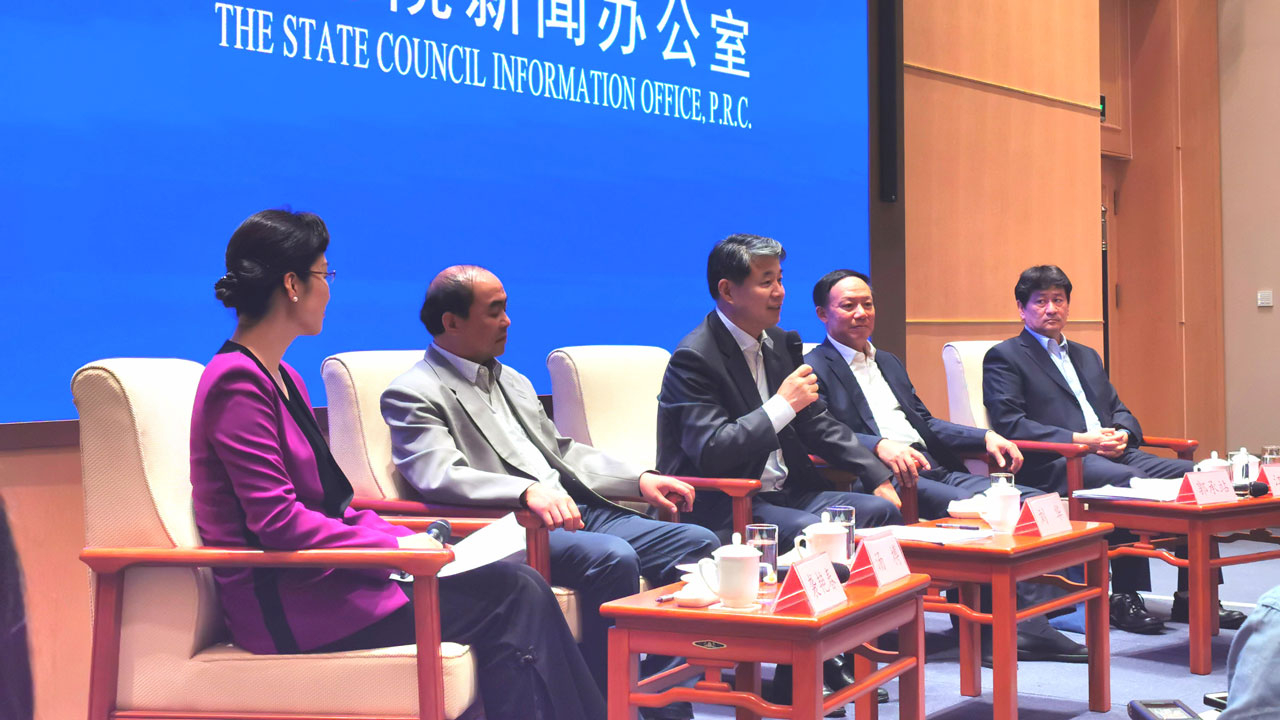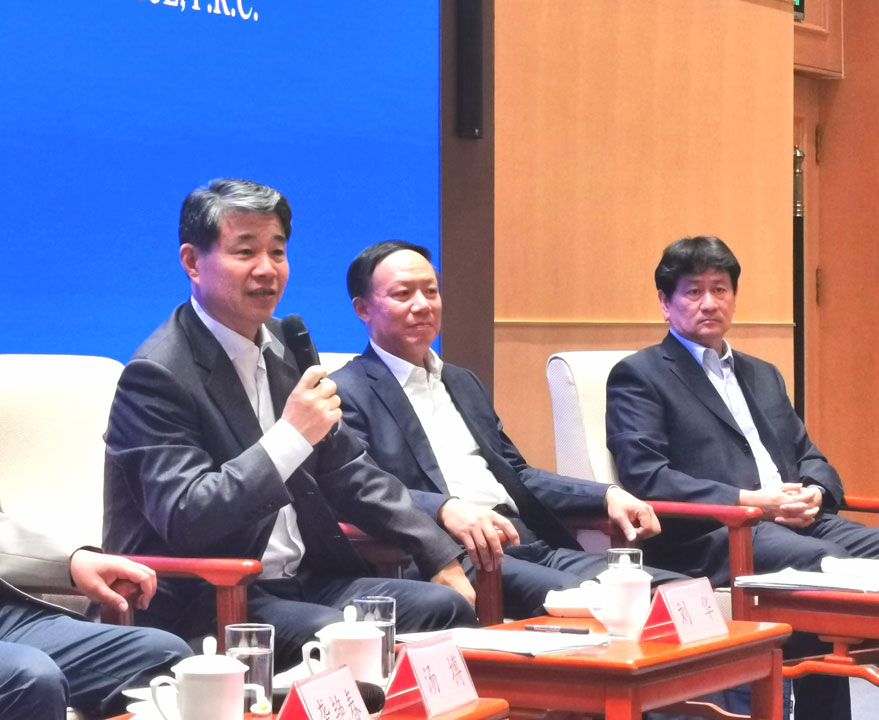

CGTN Photo
China released its white paper on nuclear safety on Tuesday. Officials with the Ministry of Ecology and Environment held a press conference on Wednesday to further explain China's efforts in ensuring nuclear safety. The officials said that China's three-level system can effectively cope with possible nuclear leaks and related accidents.
Chinese Deputy Minister of Ecology and Environment and Head of the National Nuclear Safety Administration, Liu Hua, explained how the emergency responding system works.
"The first one is at the nuclear power plant level. When an accident occurs, the plant will immediately monitor, evaluate, and correct mistakes, to prevent future deterioration and protect staff members. At the provincial level, it will support the power plant and ensure the safety of the people in the area. At the national level, there is a coordinating committee that provides support to the province and the plant. A nuclear power plant has a drill every year and the province with a nuclear power plant will have a drill every five years."

Liu Hua explains China's three-level emergency responding system on nuclear safety at a press conference in Beijing, September 4, 2019. /CGTN Photo
When a nuclear test and nuclear leak happens in a surrounding country, China will monitor, evaluate, and communicate with related countries. China has hot lines with those countries. And when it's necessary, China will provide support to those countries, following the international conventions. For example, after Japan's Fukushima nuclear leak, China kept monitoring surrounding maritime environment and provided information to other countries.
Routinely, China keeps good communication with surrounding countries on this matter. For example, China, Japan, and South Korea hold high-level meetings on this matter every year. They share information and also visit one another's nuclear power stations to learn more about nuclear safety.

Copyright © 2018 CGTN. Beijing ICP prepared NO.16065310-3
Copyright © 2018 CGTN. Beijing ICP prepared NO.16065310-3